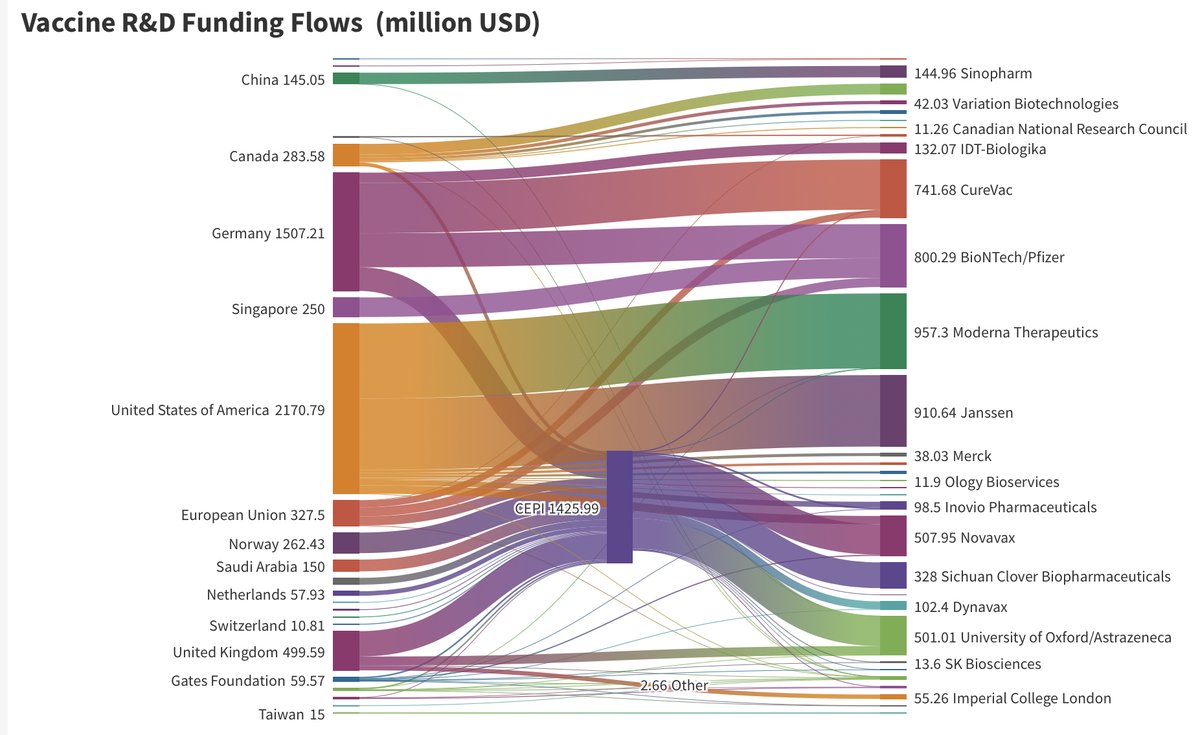
I have had enough of the debate about vaccines turning into nationalist fighting. So some comments about where to go from here (thread)
https://twitter.com/hhesterm/status/1377741475048517635
Of course, the chart would be read in the context of the AZ wars. Its importance in this regard is somewhat limited, though. /2
You can still have a debate on how to read the various contracts etc. The one line that is problematic is that any one country deserve a first shot at the vaccine because it invested more. The truth is: collaboration.
If advanced purchasing led to exclusivity clauses this risks collaborative R&D. What to do? A proposal: put a non-discrimination clause into each funding agreement. Applicable to all further developments and to be included in future contracts.
Any thoughts on this?
• • •
Missing some Tweet in this thread? You can try to
force a refresh



